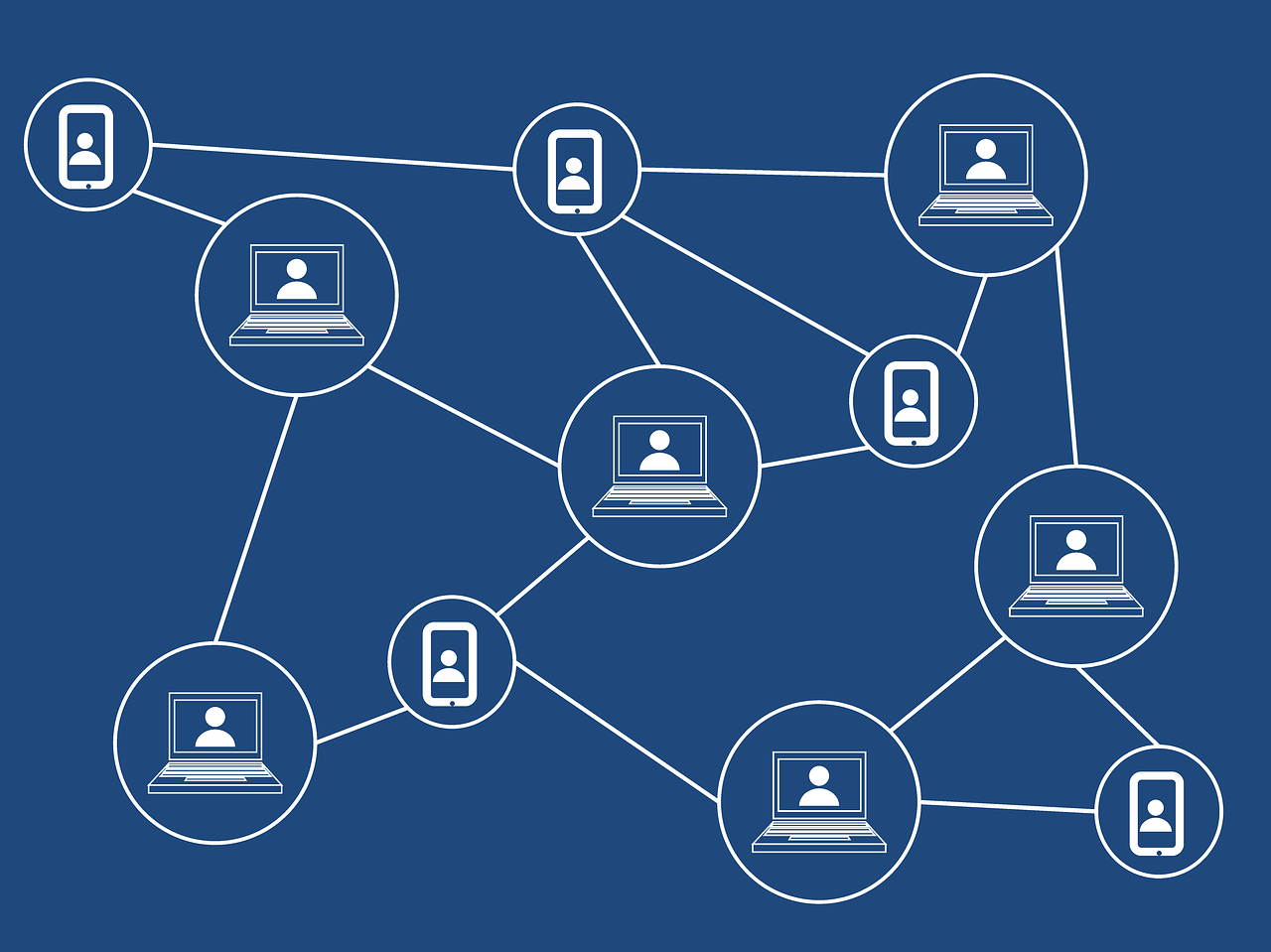The smart contract refers to a computer program that uses blockchain technology and activates according to a predetermined schedule. Their primary purpose is to eliminate the involvement of intermediaries in contract execution, enabling all parties involved to have prior knowledge of the outcome without wasting time waiting for a mediator. Additionally, smart contracts have the ability to automate processes by automatically triggering subsequent actions.
Smart contracts represent a highly valuable application of blockchain technology and can facilitate the transfer of various assets, ranging from cryptocurrencies like Bitcoin to globally transported goods. Essentially, they are self-executing applications or agreements between two parties, encoded in computer code and stored in a public database. Due to their operation on decentralized networks such as blockchain, smart contracts cannot be modified or tampered with.
Transactions involving smart contracts are processed directly on the blockchain, eliminating the need for a third party intermediary. Consequently, trust issues are minimized, as transactions only occur when the predefined conditions of the agreement are met, without any reliance on a third party.
How Do Smart Contracts Function?

Smart contracts operate by utilizing a series of “if/when/then” statements that are stored within the underlying code of a blockchain. These statements outline the conditions that must be met for the contract to proceed, and once they are satisfied and validated, a group of computers executes the specified actions. Examples of these actions include distributing payments to appropriate recipients, registering a car, sending out alerts, or imposing penalties. Blockchains are updated once the transaction is complete, finalizing it and preventing it from being altered.
1. Predefined Contract
Multiple parties identify collaboration opportunities and desired outcomes, subsequently reaching mutually beneficial agreements. These agreements may involve sharing business processes, exchanging assets, and more. The participants in a smart contract have the option to initiate it. Together, they establish the conditions under which the contract will execute its intended actions.
2. Business Logic
A computer program is created to operate automatically once the specified conditions have been met. Simple events, such as authorizing a payment, accepting a package, or reaching a predetermined threshold on a utility meter, can be easily handled. More complex processes, like automatically releasing insurance payouts or evaluating the value of derivative financial instruments, can be encoded using advanced logic.
3. Execution
Once the contract is approved, it is deployed on an existing blockchain or distributed ledger system. When consensus is reached among the parties regarding authentication and verification in a blockchain iteration, the code is executed, and the resulting outputs are recorded for compliance and verification purposes. This process occurs whenever consensus is achieved.
4. Settlement
Every node on the network updates its ledger after smart contracts are executed to reflect the current state of the network. Once the record has been uploaded to the blockchain network and confirmed, it becomes immutable and can no longer be modified. Subsequent operations will only be possible through additions to the record.
Explore our other insights!

Benefits of Blockchain
Blockchain technology enables businesses to utilize a shared and unchangeable ledger accessible exclusively to authorized members. The network

Blockchain Technology – Complete Guide
Introduction Blockchain technology is a groundbreaking innovation that offers a decentralized, secure, and transparent method for recording and

How Can Blockchain Technology Change Insurance Industry?
Introduction Blockchain technology has emerged as a disruptive force with the potential to revolutionize the insurance sector. Its
Empower Your Transactions: Explore the Magic of Smart Contracts Today!

How are Smart Contracts Created in Blockchain?
To provide you with an overview, we will outline the essential steps involved in creating a smart contract. While we won’t delve into the coding aspect, we will explain the process of writing a smart contract. The creation of a smart contract involves various stages, including conceptualization, development, coding, and deployment. Let’s get started!

1. Conceptualization
The first step is to determine the specific components you want to include in your contract. Identify the challenges you aim to address through an intelligent and automated computer program. Having a clear idea of the desired outcome will help you commence the coding process effectively. This applies to any demand you intend to fulfill.
2. Coding
Proceed to code your smart contract using a programming language. You will require an Integrated Development Environment (IDE) for this purpose. An excellent smart contract IDE is Remix, an open-source desktop and web application. You can write smart contract code in Ethereum’s Solidity programming language using Remix. The advantages of Remix include its rapid development cycle and convenient plugins.
3. Testing
Testing is crucial after coding your smart contract. Once your contract is on the mainnet, rectifying errors becomes challenging. Test chains, also known as tenets, are utilized for testing smart contracts. The advantage is that they do not require cryptocurrency. Use dummy currency to test your contract and obtain prompt feedback. Testing tools are available, and Remix simplifies testing and deployment through integrated environments.
4. Compilation
Before using smart contracts, they need to be compiled. This involves creating a JSON file from the contract’s code, enabling it to be read by various web applications. Let’s consider an example of a smart contract built on Ethereum. The EVM compiles Solidity contracts into bytecode which makes them compatible with any network that supports EVM.
5. Deployment
Finally, deploy your contract on your chosen network. When deployed, smart contracts are executed, and transactions are conducted using actual cryptocurrencies. You will need to specify wallets and incentives. Once this step is completed, your deployed contract will launch, and all programmed functionalities will be activated when the specified criteria are met.
6. Follow-up Checks
After signing, deploying, and placing your contract on the mainnet, it is essential to conduct thorough checks to ensure its proper functioning. This includes monitoring your wallets to ensure accurate amounts are displayed at the correct times. Additionally, address any storage concerns and assume maintenance responsibilities during this stage.
Benefits of Smart Contract
1. Speed, Efficiency and Accuracy
Once the prerequisite is met, the contract promptly becomes active without the requirement of documentation or time-consuming reconciliation. Smart contracts, being digital and automated, eliminate these hassles.
2. Trust and Transparency
As there is no intermediary involved, and all participants can access the same encrypted transaction logs, it becomes impossible to determine if any data has been tampered with for malicious purposes.
3. Enhanced Security
The encryption of transaction records within a blockchain makes it extremely challenging to breach them. Furthermore, in a distributed ledger, each record is interconnected with the preceding and succeeding records. Consequently, hackers would need to modify the entire chain to alter a single record.
4. Cost Savings
Smart contracts eliminate the necessity of intermediaries in business transactions, resulting in financial savings. Additionally, the expenses associated with documentation are minimal to non-existent.
Step into the Future: Learn About Smart Contracts on Blockchain Now!

Industrial Applications of Smart Contracts
1. Insurance
Processing insurance claims incurs substantial annual expenses for insurance companies, amounting to millions of dollars. Additionally, the prevalence of fraudulent claims results in significant financial losses for these companies.
Smart contracts provide various benefits beyond supporting the original insurance policy, particularly in streamlining the claim process. They can enable error checks and determine payment amounts based on specific criteria, taking into account the type of policy held by the individual or organization in question.
The primary advantages of utilizing smart contract technology include reduced processing times, cost savings, and a significant decrease in error rates.
In the future, smart contracts could be integrated with Internet of Things-enabled vehicles to enable pay-as-you-go insurance coverage and expedite claims activation following accidents. This would be facilitated through the utilization of IoT-equipped vehicles.
This integration would allow instant processing of information such as driver’s licenses, driving records, accident reports, and policy details, enabling prompt reimbursements that benefit both parties involved.
2. Government
Smart contracts offer significant advantages in automating procedures, making them highly valuable for government activities. One area where they can be particularly beneficial is in facilitating transparent and orderly property transfers during the land ownership registration process. By employing smart contracts, transparency can be enhanced throughout the system, while the cost of audits can be reduced.
Furthermore, smart contracts have various applications in government operations, including electronic record filing, electronic elections, and digital identities, as previously discussed.
3. Supply Chain Management
The supply chain can greatly benefit from the implementation of smart contracts, as they streamline transactions and mitigate human errors. For instance, smart contracts can be employed to track products throughout the supply chain, providing more accurate inventory management for companies.
Apart from supply chain management improvements, smart contracts also reduce the time spent on verifying and recovering lost or stolen items. However, successful integration of this technology requires the inclusion of new components like sensors into existing supply chain infrastructure. This serves as a practical demonstration of smart contracts in action.
4. Medical Research
The medical research sector stands to gain similar advantages through the application of smart contracts. One notable benefit is the secure transfer of medical records and other sensitive information between departments or research institutes using blockchain technology for encryption.
Maintaining confidentiality of patient’s medical data is crucial, as many individuals prefer not to disclose their personal health issues. Additionally, medical research companies handle a vast amount of sensitive information, such as test results and drug formulas, which must be kept secure.
Smart contracts offer a secure means of transmitting this information when required by a third party. This application demonstrates the potential for significant improvement in healthcare research.
5. NFTs and Gaming
The global gaming industry, valued at $100 billion and growing rapidly, sometimes experiences unfair distribution of value. Typically, game designers create and release games, and players pay money to access and interact with them. This results in a unidirectional flow of value, requiring players to spend real money to acquire in-game assets and additional gameplay options. However, the incorporation of blockchain technology in games can enhance the value players derive from their in-game investments.
6. Decentralized Finance
Decentralized finance (DeFi) dApps provide a robust alternative to traditional financial services, gaining popularity due to the trustworthiness, immutability, and transparency offered by blockchain and smart contract technology. DeFi dApps offer services similar to those of banks and financial institutions, including lending, borrowing, trading, and various other financial operations. Moreover, they introduce entirely new types of assets and decentralized business models, providing consumers with increased value and potential profit. Smart contracts contribute to transparency, facilitating global access to the financial services industry through dApps.
7. Real Estate
Smart contracts present an opportunity to establish secure records of property ownership. Utilizing smart contracts not only speeds up the process but also reduces costs, making them a superior option compared to current systems. Furthermore, they can be utilized to register ownership of various assets, including buildings, land, phones, watches, and similar items.
In the real estate market, smart contracts have the potential to eliminate the need for costly services like those provided by lawyers and real estate agents. For the first time in history, sellers have the power to independently manage transactions without relying on third-party assistance.
8. Identity Management
Existing technologies used to combat crimes like identity theft often fall short of providing owners with ultimate control over their data and the information they choose to share. This vulnerability makes it easier for fraudsters to exploit someone’s identity.
Digital identifier smart contracts, built on distributed ledger technologies, can grant individuals full control over their data and enable them to share it as desired. This enhanced security reduces the likelihood of data mismanagement or theft while also facilitating identity protection and efficient Know Your Customer (KYC) checks.
9. Trade
Companies worldwide are establishing a trustworthy network to facilitate international trade. This blockchain-based platform operates using standardized trading rules and streamlined options to minimize friction and risk, making trade more accessible and providing businesses and institutions with expanded trading capabilities.
10. Mortgage
Smart contracts hold potential within the mortgage industry, enabling the automation of mortgage processes for the convenience of both buyers and lenders. To achieve this, smart contracts need to be created based on the mortgage agreement. Once implemented, these smart contracts can be activated, automating further steps in the mortgage process.

Future of Smart Contracts on Blockchain
Undoubtedly, the future holds great potential for smart requirement-powered contracts, which enable the swift drafting and execution of relatively simple agreements, provided certain conditions are met. These contracts have the ability to revolutionize supply chains and customer relationships, resulting in significant time and cost savings for businesses worldwide. Consequently, this will reduce the need for extensive human involvement in tedious administrative tasks, freeing up individuals and key decision-makers to focus on their core responsibilities. The emergence of smart contracts as a solution to these challenges is evident.
Already, various banks and insurance organizations are actively utilizing smart contracts, and their practical application is being assessed. It is only a matter of time before they become an integral part of our daily activities. However, it should be acknowledged that there is still a considerable distance to cover before smart contracts become the governing framework for all aspects of our lives.
Conclusion
Blockchain technology enables the development of smart contracts, which is a highly attractive aspect of this technology. It can be compared to computer programs that employ “if-then” logic, commonly referred to as conditional programming. By leveraging blockchain as a database, transactions are verified, and predetermined conditions are executed through smart contracts. This utilization of smart contracts has the potential to bring about positive changes in various areas by eliminating the requirement for commissions. Moreover, it can potentially reduce instances of fraud, delays, and overall costs.
FAQs
Q: How do smart contracts work?
A: Smart contracts operate on blockchain platforms, where they are stored and executed by the network. They validate and enforce the terms of an agreement without intermediaries, ensuring transparency and immutability.
Q: What can smart contracts be used for?
A: Smart contracts have various applications, including decentralized finance (DeFi), supply chain management, voting systems, insurance claims, and more. They streamline processes and enhance security and trust in transactions.
Q: Can smart contracts be changed once deployed?
A: Smart contracts are designed to be immutable, meaning they cannot be modified once deployed on the blockchain. This feature ensures the integrity and reliability of the contract’s execution.
Q: Are smart contracts secure?
A: Smart contracts provide a high level of security due to their decentralized nature and cryptographic protocols. However, vulnerabilities in the coding or external dependencies can still pose risks, requiring careful development and auditing practices.
Q: Which blockchain platforms support smart contracts?
A: Several blockchain platforms support smart contracts, with Ethereum being the most notable one. Other platforms like Binance Smart Chain, Cardano, and Polkadot also enable the execution of smart contracts.



